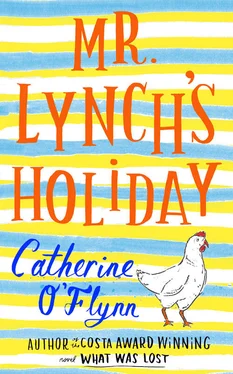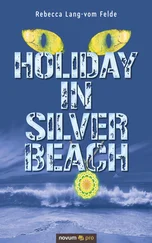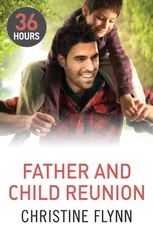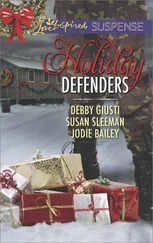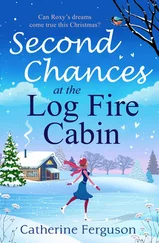‘I thought you were sleeping.’
‘I am and then I’m not. I don’t know if I’m dreaming or awake. Let me hold your hand.’
He walked over to the bed and took her hand. Her fingers were dry twigs in his palm.
There was too much to be said, so they remained in silence. He sat on the bed and listened to the ticking of the clock, the rhythm of her breaths, the crows outside. After a while he laid his head on the pillow and she stroked him as if he were a little boy once more. He closed his eyes and felt that God was nowhere.
After her death they all sought to escape. An unseemly scramble to get away: first from their father, useless in grief, self-pitying and mean-tempered, and then from his new wife. There was nothing especially malign about Teresa and perhaps they should have been glad of someone to look after the old man, to cook and clean for all of them. But she was not their mother and her presence served only to deepen the fathomless hole left by the absence. Two of Dermot’s older sisters became nuns. One brother left for Dublin, another for Liverpool. At fourteen, Dermot had finished school but was too young to leave home. He was sent to live with his grandmother over in Liscannor, who had room enough for one, leaving behind his baby sister, Eva, and his younger brother, Dominic.
Something buzzed past his head. He waved his hand and made brief contact, pushing the creature onwards through the darkness. A moment later it was back again.
When he thought of Liscannor now the memories were vivid but fragmentary: tearing down the road on Donal’s motorbike; chasing Delia Byrne through the dunes; diving into giant waves under purple skies. He remembered exactly the hit of steam and vinegar from finger holes in chip wrappers, the lustre of Mary Fallon’s lipstick, and the taste of his first Capstan.
The mosquito dived again and Dermot batted the air.
‘If you had any sense you’d lay low.’
It wasn’t so strange. Families dispersed, children scattered, homes were abandoned. It was the way things were. He kept in touch with Dominic. Postcards, visits at Christmas. But his own new life in Liscannor was full of incident. Eighteen months of tiptoeing about the house, of speaking in whispers, of feeling an unbearable heaviness pressing down on him were blasted away by the Atlantic. He had little interest in looking back, scant time or space for reflection on the way life had changed.
But when he contemplated those years now, it was not the hijinks and antics in Liscannor that absorbed him, it was the thought of Dominic back at home with his father, Teresa and their new baby. He tried to imagine what his younger brother had done during gaunt winter afternoons and the long dusks of summer nights. Who had he gone gallivanting with? Who did he wake with frozen hands in the middle of the night when he was scared?
A sudden vibration by his ear and he sat up swinging his hand through the thick black air, missing over and over again.
If Dominic bore any bitterness or sadness at being left behind, he never let it show. It was, after all, the way things were. He got out himself soon enough. Leaving home at sixteen and heading to the States. Dermot had always thought that Dominic would follow him to England and he had often worried that America had been a kind of rebuke. A statement that Dominic was his own man, the little brother no more.
When he heard the whine again, he reached for the switch, flooding the room with light, revealing the insect on the wall. He got up and delivered a close blow, his open hand bursting the mosquito’s swollen body on to the white plaster. He sat back on the bed, the room too bright, a trace of blood on his palm.
Young and careless. Stupid and preoccupied. He had let go of his brother’s hand and he had lost him.
In the morning he wandered back down to the building site to investigate what he thought he’d seen the other day. His father now apparently thought he had a sixth sense. There were things Eamonn had to accept about his recent low state. Being single, being unemployed, being a poor swimmer — all these things he had no choice but to acknowledge as true, but possessing supernatural abilities was, he felt, overstretching his role.
Zigzagging down the winding roads, it was easy to lose track of where one was — each swathe of development looking the same as the one above it. Eamonn had learned to pick out small details of decay as landmarks on the many uninhabited stretches — a rust-coloured stain on a wall, a particular grouping of weeds, cables poking from the front of a lamp post.
The failure of Lomaverde was an excuse he could give for his own disillusionment with life there, but he feared the real reasons lay within himself. He had never been any good at fitting in. He was wary of people who didn’t look like him, and contemptuous of those who did. He noticed things he did not want to notice, judged things he did not want to judge. A commentary always running somewhere in his head. He had really believed that away from England, away from the familiar, tedious triggers and his own tedious responses to them, he would be a better person. He would be his true self.
But on arriving in Spain he quickly discovered a terrible longing for all the things he’d thought he wanted to leave behind: lifestyle supplements, late-night bookies, teeming Poundshops, television programmes about food, fluttering balloons outside flooring outlets, John Humphrys, Pudsey Bear, smug young men with beards, angry young boys with Rottweilers, the sounds that weathermen made. Without them all he flailed. What was there for him on the side of a hill in Spain? A view. An unwritten novel. His own shortcomings. Laura.
And Laura knew all this, she knew it long before he worked it out for himself. And she knew too that he thought it was something he could master. He would not be defined by what he was not. He would stay there on the side of a hill in Spain and try, by force of will, to evolve into a better, more complete human being. And he would fail.
He was down now at the building site and he made his way over to the half-built house. He lifted the plastic sheeting and stepped inside, unsure what he was expecting to find. What he did find was unspectacular — empty plastic tubs of sealant, broken breeze blocks, a plastic chair on its side. Nothing clandestine or eerie. He pulled back the blue polytarp across the doorway to leave and released a high-pitch scream as he came face to face with someone.
‘Fuck. Jesus. Fuck. Esteban! What are you doing here? You almost killed me.’
‘Eamonn. My God. Sorry. What’s the matter?’
‘You! That’s what the matter is. Creeping about.’
‘I was on patrol. I see someone is in here. I check.’
‘Right. Well, it gave me a shock.’
‘Why are you here?’
‘I was just having a look.’
‘For what?’
‘I thought I saw someone. The other day.’
‘I think no one comes here.’
‘No. Probably not.’
‘It’s not safe here. Building places are dangerous. Your mother never tell you?’
‘I’m sure she did.’
‘Something could fall on your head.’
They were back on the road now and Eamonn noticed another, older man waiting there. He raised his hand and the man nodded in his direction.
‘That’s my uncle. He brought me some melon.’
‘Right.’
‘He grows them.’
‘Oh. Nice.’
‘Would you like some? I have it up in the cabin.’
‘Maybe later.’
‘OK.’
‘Esteban?’
‘Yes?’
‘You haven’t seen anything funny around the place recently, have you?’
‘Like what?’
‘Anyone who shouldn’t be here.’
‘Who?’
Eamonn felt foolish. ‘I don’t know. Just a couple of times recently I’ve thought someone was hiding from me.’
Читать дальше
